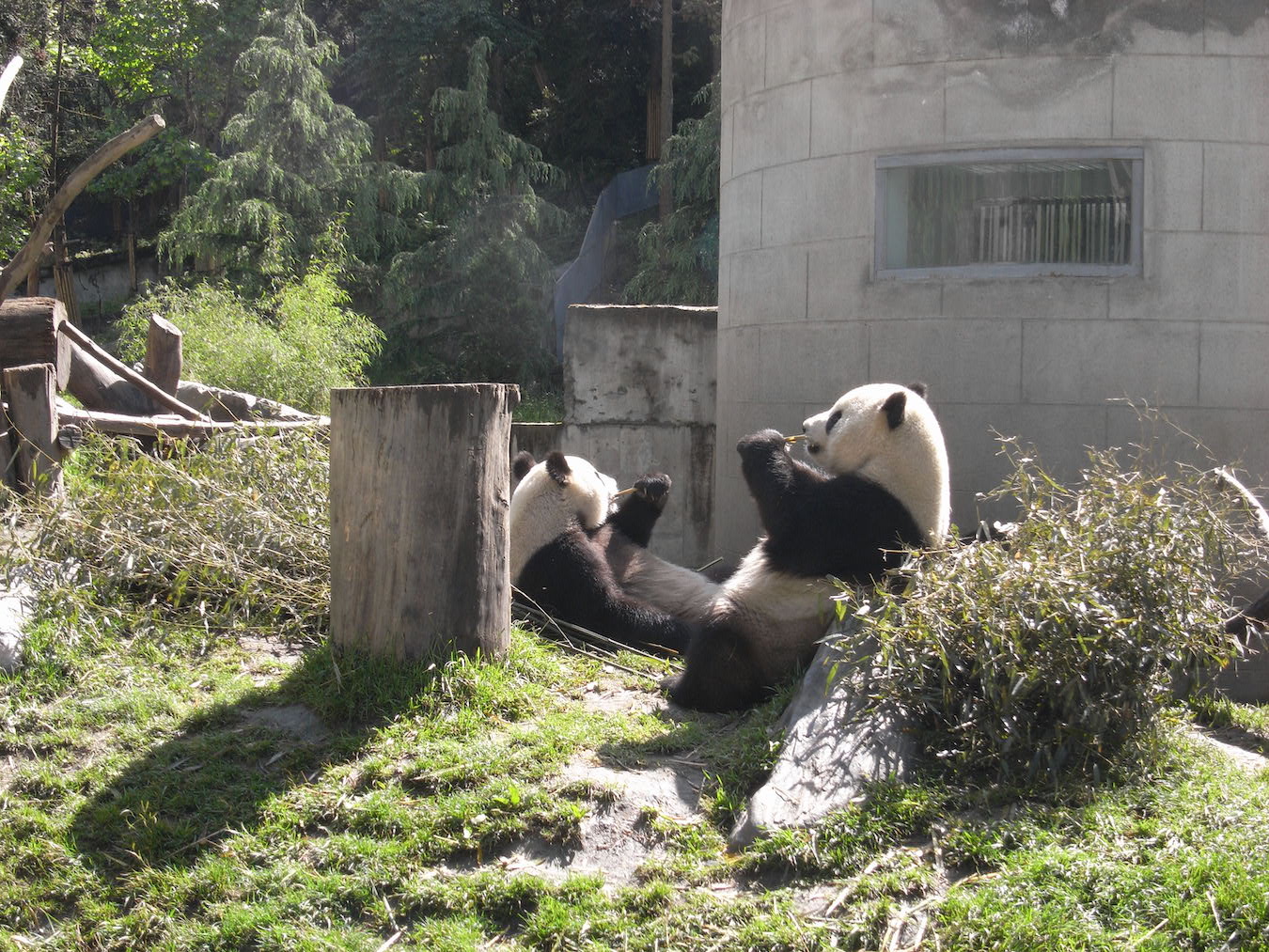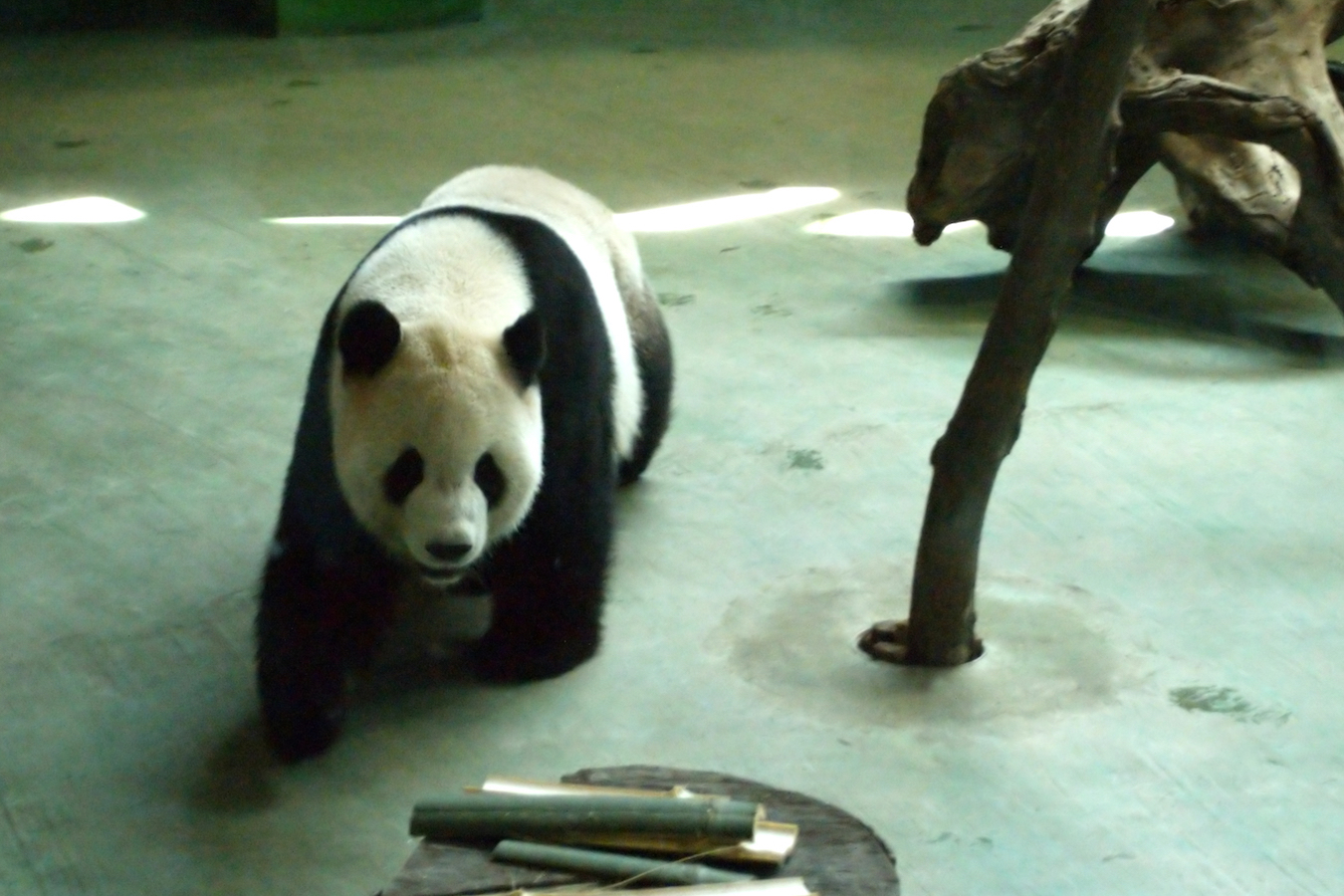by Brian Hioe
語言:
English
Photo Credit: /WikiCommons/CC BY-SA 3.0
TUAN TUAN, one of four giant pandas displayed in the Taipei Zoo, has become ill with brain lesions. MRI imagery from late September shows that Tuan Tuan has local large-scale necrosis and edema on the left-side of his brain. There is local small-scale edema on the right side of his brain.
Tuan Tuan, along with his mate, Yuan Yuan, were sent by the Chinese government to Taiwan as a goodwill gesture shortly before the Tsai administration took office. “Tuanyuan” means reunification, so even the naming of the pandas was a political gesture. Indeed, commenting on China’s tendency to name its pandas with political aims in mind, right-wing Tokyo governor Shintaro Ishihara once suggested naming a pair of panda cubs born in Japan “Sen Sen” and “Kaku Kaku.”
Tuan Tuan and Yuan Yuan later gave birth to two baby pandas, Yuan Zai and Yuan Bao, in 2013 and 2020. The two pandas were four years old when they arrived in Taiwan. At the time of the baby panda’s birth, this was so popular that displays in the Taipei MRT featured a monitor of the current waiting time to see the panda.
Tuan Tuan is currently eighteen. The world’s oldest panda, An An, died in July at age 25, so Tuan Tuan is middle-aged for a captive panda.
There are over 500 pandas in captivity. Estimates suggest less than 2,000 wild pandas.
The Taipei Zoo has requested help from the Chinese government with regard to Tuan Tuan’s treatment. Notably, the Chinese government maintains strict control of the panda breeding program and conservation efforts, knowing that the international fame of the animal is useful for soft power purposes.
Pandas are owned by the Chinese government and loaned out on a ten-year basis. The Chinese government requires payments of 1 million USD per year for panda loans.

Tuan Tuan and Yuan Yuan. Photo credit: Mikiwiki.org/Public Domain
The Chinese government also reacted strongly in the past against suggestions that pandas are unlisted from their current endangered status, suggesting that China may see itself as benefiting from the panda being one of the world’s best-known example of an endangered species. China has been accused of breeding pandas only for the sake of displaying them in zoos on loans in the past, with conservation efforts serving as a breeding mill for pandas.
The timing of Tuan Tuan’s illness may be read as politically significant, given the ebb in cross-strait relations. Tuan Tuan’s illness came only a month after a visit to Taiwan by US Speaker of the House Nancy Pelosi, which China responded to by conducting unprecedented live-fire drills that took place closer to Taiwan than during the Third Taiwan Straits Crisis.
This may be all the more the case seeing as Tuan Tuan is named to signify reunification. Tuan Tuan’s illness, then, could be read as an omen marking the demise of China’s hopes for unification with Taiwan. Of course, it is primarily China that has pushed Taiwan away through military threats and other gestures intended to frighten Taiwan, when goodwill gestures might have been able to keep Taiwan in the fold longer. Indeed, when Tsai Ing-wen of the historically independence-leaning DPP was elected as president in 2016, rumors swirled that Tuan Tuan had spontaneously died. But now the animal is genuinely sick.
It is to be seen how China responds to Tuan Tuan’s illness. Declining to assist may be seen as petty. or politicizing the health of an animal that has become sick for no fault of its own. Yet the lives of Tuan Tuan and Yuan Yuan were always bound up with cross-strait relations, a way in which even pandas can serve as geopolitical chess pieces between nation-states. This may be more generally true of the panda as a species, however. Pandas were famously sent to the US for the first time as a diplomatic gesture following Nixon’s historic visit to China in February 1972. This is a way in which the fate of pandas as a species has become wrapped up with human geopolitics.
But, of course, China has seen fit to politicize health issues regarding Taiwan many times. This is perhaps most visible with Taiwan’s exclusion from the World Health Organization, excluding Taiwan from information sharing and international medical resources. This was true even during the COVID-19 pandemic. As such, it may not be surprising if pandas in Taiwan are prevented from access to medical resources simply by virtue of being in Taiwan.



